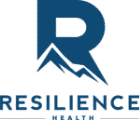
Relapse can occur due to many factors, such as being placed in a high-risk situation or lacking confidence in their ability to quit. Some may even return to substance abuse because they are returning to the same situation that pressured them to begin abusing them in the first place.
If a loved one has relapsed, it can be difficult to know how to support them, but there are some ways you can help. Keep reading to learn more about how to support a loved one who is experiencing relapse.
Remain Supportive
When you first learn that your loved one has relapsed, your reaction may be to get angry or express disappointment. Understand that these emotions, while valid, will not help your loved one. They may be experiencing shame, embarrassment, and disappointment in themselves. The best way to react to the information that they have relapsed is to acknowledge their feelings and express empathy. Be sure to listen to how they feel and share your concerns in a respectful manner.
We understand that substance abuse can be difficult not only for the person using them but also for the family supporting them. Resilience Health provides family education and support programs to help you practice caring for yourself and setting healthy boundaries.
Offer Help
Depending on where they are in their recovery, you can offer help. However, it’s important to be aware that they may not be ready to receive help or become sober.
If they are ready, you can help them create a plan, accounting for any possible issues or concerns they may come across. This may include helping them find a treatment program, discussing payment options, and more.
Continue to support them and reinforce positive steps they take toward recovery. For example, if they ask you to attend meetings with them or participate in certain activities.
Rather than do things for your loved one, encourage them and assist them so they are able to help themselves. The level of assistance they need may vary as they recover, but be patient.
Working with a family therapist can also help you gain emotional support and set healthy boundaries during this time.
Contact Resilience Health
If a loved one has relapsed, we offer a two-year rehabilitation program that offers the long-term care and support needed to prevent a relapse. We also provide relapse prevention to help them identify triggers in their life that may trigger a relapse and how to address them. We can also provide a relapse prevention plan, so they have the resources necessary.
Contact our team today at (435) 261-7878 to learn more about our rehabilitation program.


